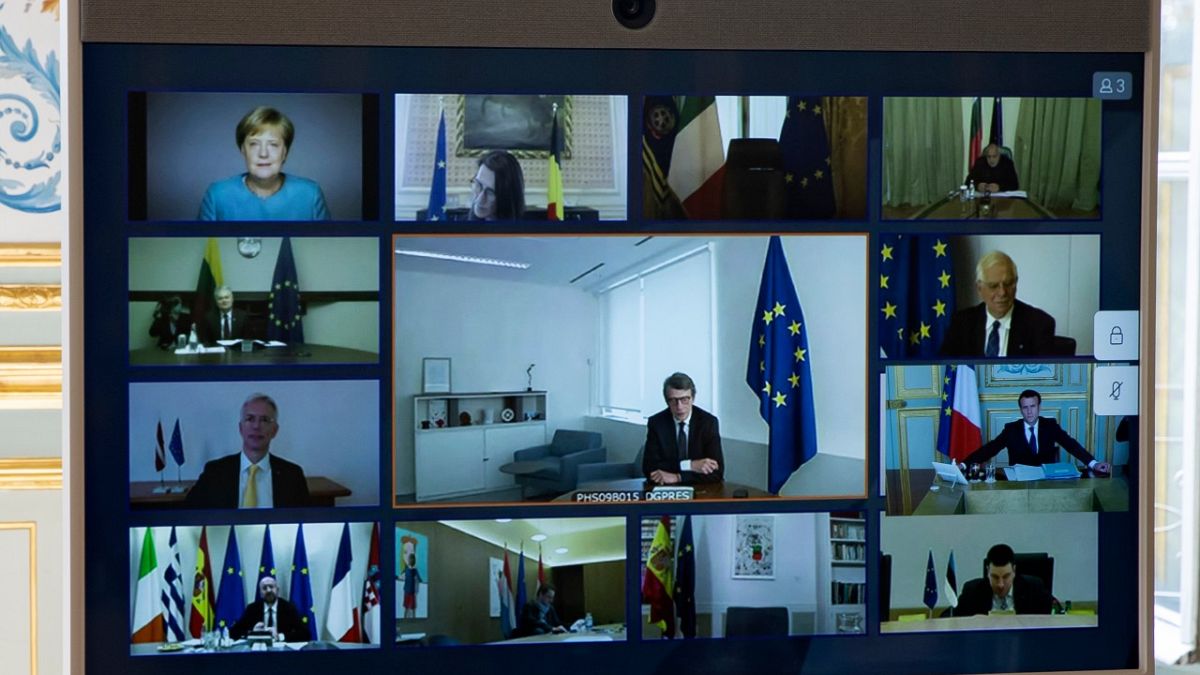As EU leaders meet to thrash out the details of the financial recovery, we look at the debates raging across European capitals.
As the immediate health crisis eases, and countries tentatively begin to unlock, how to restart Europe’s economy, get people back to work and businesses to reopen is the unenviable task facing the EU.
It has led to divisive debates among leaders over debt and grants, ultimately how does the wealthier north should help out the harder hit south?
So we asked MEPs from Germany, Italy and Spain their thoughts in the debate raging within the EU.
“What we need at the moment is help for those people in need," says Andreas Schwab MEP from the same political family as Chancellor Merkel (EPP, Germany).
He defends Berlin's position that the next steps cannot include a treaty change, as this would require a lengthy process.
"It is for that reason Angela Merkel would say that is not an option but she will say that a huge increase in the EU budget, combined with other measures of the ESM and other credit lines can help member states overcome that crisis together," he explains.
Germany has said it does not want debt sharing instruments such as the so-called 'coronabonds' or 'Eurobonds' favoured by Italy and Spain. The argument over solidarity has become a bitter one, with those who favour the bonds tying the fate of the EU to their implementation.
Elisabetta Gualmini (MEP, S&D, Italy) doesn't quite agree with Schwab.
"It is not correct to link the life and death of the European Union to the Eurobonds because there is already a wide tool box.”
Another economic instrument that has been touted is grants. Spain has issued a call for 1.5 trillion recovery fund financed through perpetual EU debt.
“The point is we need grants to member states because when this first stage of this crisis is over," says Jonás Fernández MEP, S&D, Spain. "National public debt will be very, very high that some countries there will be a relevant problem to finance the debt.”
So does Europe need to find a solution that does not put more debt on Spain and Italy?
“Absolutely, that’s an absolutely fair point," claims Schwab, "but I would first of all to agree with Elisabetta Gualmini, to say that Europe cares and the European Commission has taken action especially in the context of the SURE program, the debate in member states that is going on, are purely national debates and they are not serving European cause.”
EU institutions have struggled to get EU leaders to put aside national interests, but as Gualmini points out, this is a natural state of affairs:
“You can not ask a national leader to transform himself immediately into a European leader because he has a constituency and his electoral support is a national state.”
In the middle of the debate is Italian Prime Minister Giuseppe Conte, who is being dragged in different directions by his coalition partners and by Italian public opinion.
“Absolutely, this is not the time of politics of usual," says Gualmini.
For Jonás Fernández, unprecedented times call for unprecedented measures - that means a truly coordinated approach to the recovery:
“There will be some countries with less debt, and more capacity to improve their national economy after the crisis. And there will be other countries who will not have this opportunity to support the economy and that is the point and this is what we have to solve. Because if we want to keep the single market united, if we keep a future for the European Union, we need a common response.”
EU leaders meet on Thursday with all of these arguments ringing in the ears.
